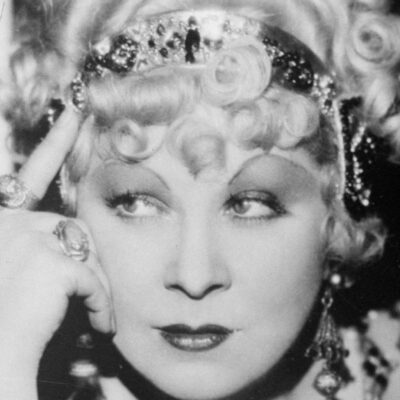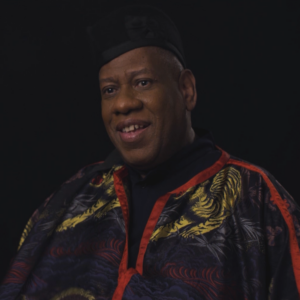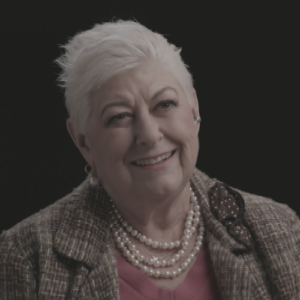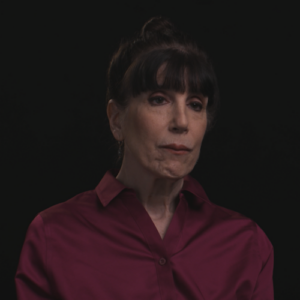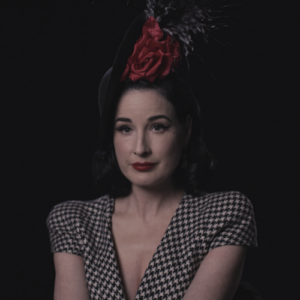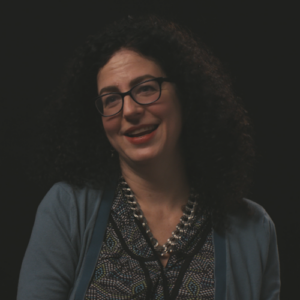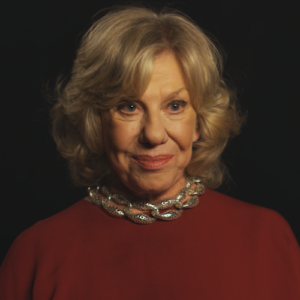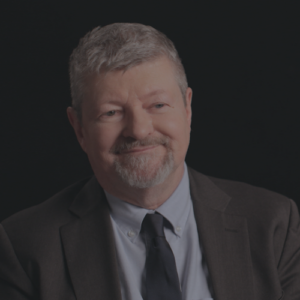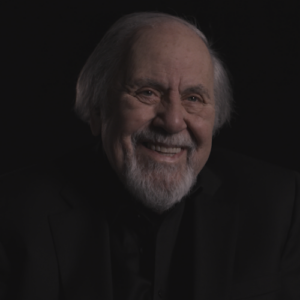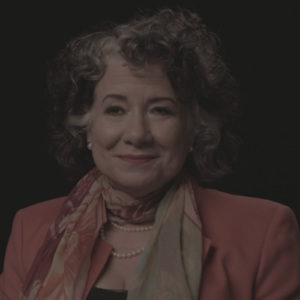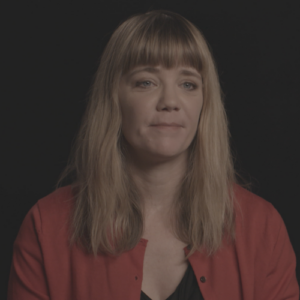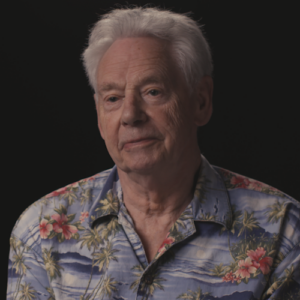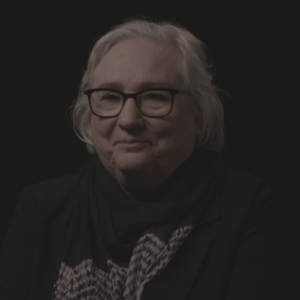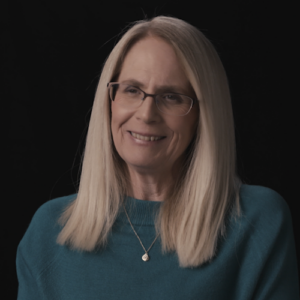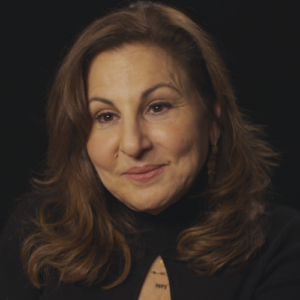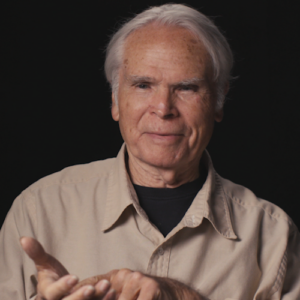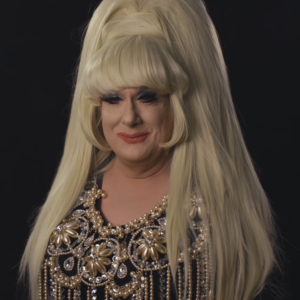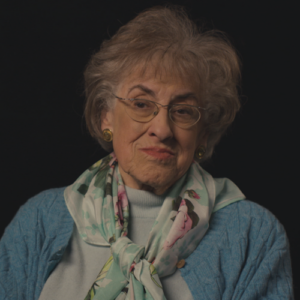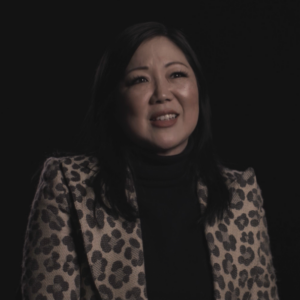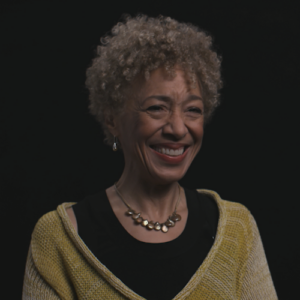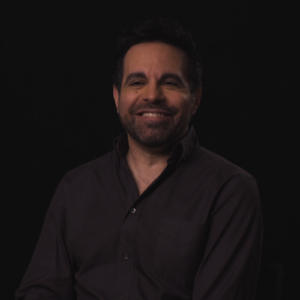Rona Barrett: My name is Rona Barrett, and I was the first woman. I’d like to say that covered the entertainment industry, all aspects of it for television. And I was the first person who was ever syndicated throughout the United States. And then on the full network at ABC.
Interviewer: And what went around what Thank you. Did your career really get going?
Rona Barrett: 1804 Let me say. No, not 1804. I, I started on television in 1965, 66.
Interviewer: So tell me how you first met Mae West.
Rona Barrett: Well, interestingly enough, Mae West came into my life in a very kind of wonderful and strange way. Every night in the late sixties, early middle, well, I guess about 67, the Vietnam War was on. And it was the war that we watched every night on television. And it was just horrific. And I also was on for the first time doing, you know, covering the entertainment industry. And though many people thought of it as sort of trivial, it wasn’t really trivial. We were making headlines also like other people were making headlines about what was happening. Yet in our business and the people who were involved in it. And one day I said to my little staff, I said, We must think about something that could make people just smile, if not laugh at the end of our broadcast. I mean, I bought a little two or three minute segment. And I don’t know, you know, sometimes you think things like this just happen. But one day in the mail, there arrived a book, a little tiny book, and it was called Mae West’s Wettest Mae West’s Witticisms. And I started to open the book, and I found myself just guffawing. I was laughing so hard. Everyone came over to me, said, What are you laughing at? And I said, You’ve just got to listen to this. And I started reading these various stories that Mae had written. And so I said, Wouldn’t this be a very good way that if we could figure out how we could end our broadcast with something like a mae West witticism, maybe people will smile instead of really saying, Oh my God, what’s happening out there? Look at our boys. How awful and terrible and what a war was. It was, you know, the war we watched on television. And I found a way to do it. And when I did it, I couldn’t help myself. I was starting to talk like Mattie. What do you mean? Oh, I didn’t really say that. Oh, I don’t know. Tell me, girl, what are you talking about? I mean, whatever it was, I. I was saying it, and the cameramen were shaking the cameras because they were laughing so hard and in the middle of what was going on. And eventually they started to watch the late night news and saw me use her stuff and her public relations guy who was responsible for sending me the book told her, Did you have you been seeing Rona Barrett on television? She sometimes uses material from your West Witticisms, and she said, Oh, I’ve been watching it all the time, Stanley, what are you talking about? His name was Stan. And so so one day Stan said to me, you know, I said to him, Stan, I’m starting a whole magazine kind of business, and it’s going to be called Rona Barrett Hollywood. And we’re going to have a party at the Beverly Hills Hotel. And do you think Mae would like to come? And so she came and of course, everybody’s eyes were popping out, Oh, my God, Mae West and whatever. And the cameramen and the news people were around and the newsreel guys, especially from ABC, took some pictures of Mae. And, you know, I’m in the midst of this entire crowd. And and that was, you know, it. And we shook hands. And Stan kept telling me, you know, Mae doesn’t take two women too well. I said, Really? Why? You know, she doesn’t want anybody to, you know, overlook her so that she she just doesn’t do well with with women. With women. And I said, Oh, I’m so sorry. So she said to me, Sit down. So I sat down next to her and I said, Miss West, I can’t thank you enough for coming today. I think it’s a great thrill. You know, I’ve seen your pictures and so forth and so on. And she said, Would you like to know something about my how I saved Paramount Pictures from being going bankrupt? Hmm. Sorry. Anyway, I said, can we do this maybe in another time, because I’ve got so many guests and I had the chairman of Universal there and the president and of all all the different studio people were coming. And so that was the end of that. So about a couple of weeks later, I’m still continuing to use little of the West witticisms on my broadcast. And one day I, I don’t know. I think I think Stan said to me, I, I think Miss Wood may want to invite you to dinner. And I said, Really? And she says, Yes. And she loves to eat downtown in Los Angeles in a certain Chinese restaurant. She just loves Chinese food. And I said, Oh, I love Chinese food, too. So they gave me the address of where I was supposed to go. And it was I can’t remember the name of the restaurant, but it was a real famous one, you know, almost like the name Romanoff, but in Chinese. And so we went there and we had the most fabulous dinner and may hardly said a word to me, but I was there. So that was the that was the end of the dinner. And I thanked her so much. And one of the things that I knew that Mae was always interested in was the other world. She was interested in the occult and she was interested in all everything that had to do with that particular phase of understanding about who you were and what you were and what they had to say about you and your future. And so every time she could find a psychic, she would bring him to her building that she also owned, that very few people knew that she owned this gorgeous apartment building in in in Hollywood. And one day I get a phone call and saying, Miss West would like you to come to a a session she’s having at her home. And I said, well, I’m not going to miss this one. So I went to her lovely apartment building and she fixed the lobby of the building. And the chairs were all done so everybody could, you know, like stadium seating. And she had this wonderful psychic come up and tell, you know, and ask. And we talked about it and we said, you know, we would say things. Who’s got the initials D? D in this audience? And and they would say something and then somebody and then she would say to the guy, Oh, I think I’d like you to talk to the girl at the end of the room. You know, she’s in the back of the room. And and I think she was pointing at me and he said, R, R.B., who’s our B here? And I go, I am. And he starts saying, he said, Oh, you got a big career ahead of you. And you have no idea. I mean, now talk like me. He didn’t talk like me, but I did. And so suddenly and I said, Well, thank you very, very much. And that was that. And the evening was over. And I don’t remember if she served anything or not. I don’t think so. And there must have been 60 people in the lobby, and they were all giant Mae West fans. And so that was that was that. So one night I decided I was going to have a dinner and I said, I’m going to have a dinner for Mae West. And so I called up. And I said, Stan, do you think Mae West would come to dinner at my house? And he said, Well, I’ll ask her. He said, Why not? So sure enough, she said, Yes. So she arrives at my house and I decided I should invite a few other people. So I wound up I wound up with George Segal and his then wife and a producer. And I can’t remember who was there. And I also invited a major rock and roll star. The rock and roll? Yes. So the doorbell rings because the rock we had sat down for dinner, but he was a little bit late. So I go to the front door and I almost don’t recognize that this is what the man really looks like. And the first thing he does is he pulls up his pants to say to me, I’m sorry I’m late. I went to buy a pair of socks because I don’t ever wear socks. But I couldn’t imagine coming to your house without socks and meeting Mae West. It was none other than Alice Cooper. So that was the beginning. And I introduced the two of them. And she said, Oh, nice boy. Why don’t you sit over here? So the evening went and neigh for an hour and a half, regaled us with the history of her arrival at Paramount Pictures and how she saved Paramount from going bankrupt. And during the story she also tells about that she’s driving in the car on the lot and she sees a very good looking man walking toward her. And she says to the driver, stop. And she rolls down the window and she said, Fella, come over here. And the person walks over. And now I’ve just just lost his name.
Interviewer: The Cary Grant.
Rona Barrett: And, and, and that was it. And she said, And what’s your name? But he didn’t has it didn’t have the name Cary Grant. He had his original birth name. And so she said, You’re going to be in my next film. And that’s basically what happened. And and that was the beginning of that story. But it was you know, it was all all about the people who were running Paramount at the time, and they were in deep financial trouble. Or it seemed that at that moment. And and there was me saving it. Now, that’s one story.
Interviewer: Yeah, but can you go back to sort of what did you were you a big fan of hers in the sixties anyway? You had watched all her movies. Like what did you.
Rona Barrett: Well, because I watched a lot of movies. And it wasn’t that I was an enormous fan of Mays. It’s just that she was so different. She was absolutely so different than anyone else who was up on the screen. And that voice of hers, you know, it was I mean, it was just almost impossible not to imitate, even if you were the dumbest imitator in America. And which I may be right now. But but she was but she was charming.
Interviewer: What made her so different than the other sort of Hollywood starlets of her era?
Rona Barrett: She was a risk taker and she always liked the double entendre. She liked to be risky. She liked to take it right to the point where the behavior the world is bored would not allow it to go on on the screen. But I think the hays wasn’t around yet. It was before that. But that’s what happened. I mean, she was just an unusual person and she was very smart. She was smart with her money. You could tell because, I mean, I would once I was driving in a car with her, you know, her car in our limousine, I should say. And and I said, well, where we going? And she says, well, I’ll have to look at one of my buildings. And I didn’t realize how many buildings she owned. And and she kind of alluded to me that at one point when I met her that half of the San Fernando Valley was owned by her, wasn’t quite half, but she certainly owned a lot of pieces of real estate there. And she was fairly wealthy. They I mean, I’m told at the time when she passed away, she was worth about $20 million, which was a lot of money for anybody to have at that time.
Interviewer: What how in the sixties, you know, at that point she was in her seventies almost. How did the rest of Hollywood regard her? What did they do? She a relic? What did they think about her?
Rona Barrett: Oh, well, yes, she was. Her days of being in the movies was over. But she went to Las Vegas. She performed all over the country. And she you know, her life wasn’t over. And the interesting thing is the day she came to the big party when we were inaugurating on magazines, she. The following day after that party, I received a phone call from the vice president of 20th Century Fox and he said, Rona, I was just watching a little piece of the newsreel that’s on the news with Mae West. Tell me about her. Does she still have it up there? And I said, boy, does she ever. And he said, was that really her Was somebody else talking? And I said, Ned, why are you asking me these questions? He said, Well, I’ve got a movie. And I think she would be so perfect for this particular part. And I said, Well, what movie? And he said, I can’t tell you, but I just wanted to know from you whether you think she’s still capable of of remembering her lines and doing a part. And I said, I think so. And he said, Thank you very much. And that was it. It turned out to be Myra Breckinridge. And and that was, again, a resurgence, the beginning of of Myra Breckinridge of Mae West. She was absolutely you know, it was it was great. And she was very excited. And again, it was like, what can I you know, what can I do for you? But she never said it. So one day I get another phone call from Stan, and Stan says, Nay wants to have a party, a dinner party, but she wants to do it at the director George Cukor’s house. Could you come to Cukor’s house? She wants you to be at the party. And I said, Stan, for a woman who doesn’t particularly like other women. Women? Why does it. Why does she want me there? I said I hardly contribute anything to anything. I mean, the woman, you know, she gets this. He sits down and she talks for 2 hours without stopping. So and he said, Just be there. And and I may have the story out of time place right now, but I went to George CUKOR’S house and who’s sitting who’s at the house already, but none other than Merle Oberon and Merle Oberon and I I’d met we’d met briefly before. And remember, I was covering young Hollywood. And this this was the the traditional, wonderful old Hollywood. And Merle says, Oh, you’re just as little as I am. I have so many clothes for you. I want you to take my clothes. And I tried gently to say to her, I don’t really need any clothes, but I didn’t want to be rude. Anyway, but about a half an hour later, the doorbell rings and in walks Mae as escorted by her then man friend who had been really in her life for a number of years, Paul Novak. And, uh. And she stops and George Cukor comes over and kisses her on the cheek, and Merle gets up from her seat and walks towards the entranceway. And I’m just they are sitting, not knowing what to do. Do I get up? Do not get up. And so I started to get up. But I hear Merle say to me, Oh, Miss West, I’m so sorry it has taken so long to meet you. We were both on the Paramount set and the paramount stages at the same time, and I never got a chance to meet you. And so I’m so thrilled to meet you now. And Mae just looks and said, Uh huh, nothing else. Nothing else. And. And she walks towards me. Now, I don’t know whether to get up or not. And she said, Honey, you don’t have to get up. I know who you really are. And she says, I see you once a night, sometimes twice a day. And and that was. That was it. And that was the beginning of the real me. And then having me sit next to her, you know, a whole bunch of things like that. And we just became kind of friends. Funny, funny, kind of friends, I think. Psychic friends more than anything else. So then I’m just trying to.
Interviewer: Did you get the sense that she had that there were people that she confided in? Men told me that in a full sentence who were often.
Rona Barrett: I would say they had the people who worked in her act in Vegas. Men, friends. And of course, she had an enormous following of of gay men. They just adored her. They worshiped her. They they copied her. They had balls and they dressed as as they would dress. And and, you know, she would always talk about one of the stories she always loved to tell about one of her movies had to be when Cary Grant came to kiss her and came up close and she has the line, she says, Oh, are you happy to see me? Or is that your gut feeling? You know, something like that was that one. And then so she always would tell that that story. And so that night as we sat for dinner, had a great dinner, but she regaled us with one story after another about Paramount, about all the executives at Paramount, about all the people that and all. It was always about men. It was never about another woman. Of all that I ever heard was she really doesn’t like to work with women. And then now a several years have gone by and I get a call from an attorney who is like sort of a friend of Mays, and he says, Mae is going to do a movie she’s been wanting to do for years called Sextet. And we’ve now gotten all the money that we need for it and may want you to be in sextet. And I said, What you you all tell me she doesn’t like to work with women. Well, she wants to do this one particular scene with you. And so I said, Oh my God, I don’t like to take the part of an actress. I’m not an actress, so I don’t really like that. She said, But you’re playing yourself so you can play yourself. And so I said, Well, for me, okay. So I arrive on the set when they finally start production and they hand me a script and the next thing I know is I said, Where’s Mae? Isn’t she going to rehearse a line with me? And he said, Well, no, that those lines are now going to Timothy Dalton. And I said, What? And I said, I thought that’s the reason she wanted to do it. That is going to be the first time she’s going to be working with another woman. Well, that’s why you’re not working. That’s why she’s not working with another woman. She’s given it to Timothy. And but he was charming and nice. We did the scene and that was the end of it. And I continued to go to her beach house and I continued to go to some of her other little events that she would have. And and we just remained friends. And until there’s another story I will tell you, it was about the story is the night that I invited a maid in my house and the following day. This is typical Mae. Stan calls me. And I said, Well, did she have a good time? Yes, she had a great time, but she was really PO’d. And I said, Why? She said. And Stan starts talking like me and says, she said, Oh, that woman sitting next to that gorgeous George. Oh, I wanted to scratch our eyes out. So good luck. And I wanted him and an ancestor, that’s his wife. And she said, I’ll get rid of her. I want her. And anyway, that was that was the story in May’s eyes. George was looking right at her, and so she thought he was making eyes at her. And of course, George didn’t know what to do. Goodbye. Then called Seale and said, I got to tell you this story. And he said, It’s beyond my scope, you know, end of story. But it was a very funny moment that that she looked at these men that were at the table. And and and I think George’s wife was the there was a second woman there. But I think that that was it. There were three women, me, me and two other women. Four. And so that was that was it.
Interviewer: George That was George Segal.
Rona Barrett: George Segal. George Segal. Oh, was so gorgeous on her, you know.
Interviewer: So she really was as intimate as she pretended to be, because that’s the question with me is how much of it was a character and how much of it was really? How do you have a sense of the.
Rona Barrett: I would I would say that that except for when May may have gotten undressed to go into bed. I would say that all her conversations were with men and she liked men. She liked men. I mean, I know I’ve heard all the stories that she was really a man in drag, and I just don’t believe any of them. I, I really think she was a small, full blown woman and who had an extraordinary look about how life should be. And she wanted to be different. She didn’t know any other way to make herself into someone that somebody would remember. And between the accent, having been born in Queens and raised a little bit in Brooklyn, she may. But they brought that New York accent and made it work for her. And the way and her her timing, it was all about her timing, You know, the way she would move it was all you have to do is just it was so easy for anybody to start looking and almost trying to imitate her because the moves were just, you know, kind of calculated, but not but always sexual in nature. Always sexual in nature. And that was one of the things, you know, people just can’t talk about those things. I mean, how could you do that? How could she say that? And that was but that was what made me mad.
Interviewer: Where did that why was there a rumor that she was a man? Where did that come from and why?
Rona Barrett: Same rumors. It’s fake news today.
Interviewer: There’s something that you said about a secret that was going to come out about her when she died. Or somebody.
Rona Barrett: Oh, yes. Somebody started that story, too. To the best of my knowledge, there was no real secret, etc., etc.. I will say this, that when May was, I was told that that her time was coming. Um, I don’t know. I just remember her saying I made a mistake. And the mistake was that she never left money to pull. She wanted to leave most of her money to Paul, but never got around to writing it in her will and her trusts. And so he, after maybe 20 years of service and friends, etc.. Um, to the best of my knowledge, Paul never got a dime from her estate, and it’s a good reminder for people to remember if that time ever comes. Even if you’re only 20 Now, think about who you want to leave something to.
Interviewer: Did she talk to you or did you hear her tell stories about her family at all? Her sister, her parents were family.
Rona Barrett: I heard her tell stories about her sister, but some stories were like they fought like cats and dogs and others where they loved each other. I do think they had one of those kind of relationships that some days it was really very good and some days it was really the cat hour. And and I don’t ever want to see her again and blah, blah, blah, blah. I heard, you know, I heard her say some things like that. But that was that was it. I never knew anything more than that. She did tell me how she was, why she got married so early, to get away from the parents. And but she never was in love with any of those men and so forth and so on. And I think there were a few men in Hollywood who may have had a dabble with her and who could probably at the time attested to the fact that she was really a woman.
Interviewer: Do you have a sense that she was ever in love with any of these men that she was with?
Rona Barrett: No, I think she had crazy crushes and that if she could have Cary Grant, she would would have wanted them. But I don’t think that was the case on both counts. So I don’t I don’t really know. I’d I’d be guessing. I just it’s just a feeling. I, I have a her and I think I had a fairly good sense of who she was and why she wanted to do the things she wanted to do. And and she almost would never allow anybody to see a sad side to her. Really. I don’t know of anyone who ever even told stories about seeing me sad, including, you know, her longtime press agent, Stan.
Interviewer: So do you. I’m just kind of wondering if you knew anything about her relationship with her father and how that affected her relationship with men?
Rona Barrett: No, because Mae, at an early age was already a young girl who was stepping out and doing what she wanted to do, no matter what anyone else said. So I don’t know how much influence. And I do believe that a parent does have an influence, but it may not have been the best influence, which is why she felt that the only way she could escape was by getting married at 16 or 17 and did. And then when she wanted it to be over with, she it was over with. And then she married somebody else and that was over with. And my feeling was I never was sure about what that relationship with Paul was like. He was more than just a tall, handsome man who was a bodybuilder and whatever. There was great camaraderie and and and great affection between the two of them. It’s not that you saw them kiss or anything. You. I just picked it up. It’s just something that you would sort of see and understand. And that’s what I felt about the relationship. But it was a long time one and it was apparently a very important one in her life.
Interviewer: Do you do you have a sense that she was. Do you think she’s an empowering figure for women?
Rona Barrett: I don’t know at the time, but I certainly think later on.
Interviewer: Explain that more.
Rona Barrett: Well, I think when people saw the various acts that she put on and when she was and when they did look at her movies, I think they saw such an independent person that it gave them maybe some courage to be something else. But. As far as I’m concerned. Nothing ever happens overnight. And it took a lot of years for Mae West to be recognized as someone that should be recognized. And that is all that I can really say about my observations and my knowing her, though it was only maybe she died in 1980 and I met her in 69 or something like that. So is 11 years of of a friendship that she that I don’t think she had other than with maybe her sister, other than myself. I mean, I know there were other people, but I never saw them around.
Interviewer: Well, you know, it’s interesting that you met her at the height of, as you were mentioning, Vietnam and, of course, the feminist movement, counterculture and all that. All those things that were happening was she wrote them.
Rona Barrett: Yes.
Interviewer: Tell me about.
Rona Barrett: That. Well, I don’t know. I can’t tell you a lot about it. I know she was totally aware of of all of it, but. But I can’t tell you specifically. And I think only once did I hear her say something about, oh, those women. They’re finally learning exactly what to do.
Interviewer: But feminists.
Rona Barrett: The feminists.
Interviewer: Anything else that you can say on that? That’s really interesting because, like.
Rona Barrett: I wish I could as I said, we never had the opportunity, nor did she give it to me. You know, you sometimes you can’t force it on somebody. And I never felt that she never she never gave me anything more than what I sometimes overheard. Or she just, in passing would say something that was kind of bold and or she’d say, Oh, I think I’d like to meet that girl. Maybe yes, maybe no. You know, I mean, I mean, I don’t know. I mean, she was just a funny lady of. Of a witty lady. Wasn’t that. It wasn’t that she was funny. Funny, You know, like telling jokes. It was just the way she spoke and the way she delivered her lines. And also, you have to remember, she wrote almost everything she ever read. I mean, if she ever spoke, I mean, everything was written by her or always rewritten by her.
Interviewer: When you started reading her lines on TV, do you remember any of your favorites?
Rona Barrett: Oh, I guess one of my favorites was the one when she walks up to. Oh, I don’t know. This is she’d done them wrong or whatever. And and she goes to the hat check girl and she puts her hands there and and the girl says, Goodness, hold hands are filled with the diamonds from here to up to here. And she said, Oh goodness, had nothing to do with it thereI.
Interviewer: You do a really good thing. I mean, any other one?
Rona Barrett: Oh, I you know, I read something that she’s written and I suddenly am reading it like May would have read it or something, but other than that, that was really about it.
Interviewer: But do you think just going back to what we’re saying, do you think she would have considered herself a feminist or was that too? Didn’t you call herself that?
Rona Barrett: Maybe at some point. But I think she always thought of herself as somebody who was a risk taker and didn’t mind risking it all. So if you talk about feminism, I think that most of the women who started the feminist movement felt a lot like that. They may not have set it up to be that it was from Mae West that they learned some things. But. Judge Ginsberg is a different form of Mae West to me. I love that woman. She is something else. She too. I mean, I think these are two of the most interesting women. I mean, we’ve got a lot of interesting women out there, but this is not a program about interesting women. But I think Mae would have fallen into that category of of of extraordinary women who who knew exactly what what they wanted to do, what they finally did and achieved as much as she achieved. You know, 80 was a long time for somebody to have lived with it when 1980 was around. That’s more than 20 some odd years ago. So and much has changed, but it’s taken that long for the change to take place. And I’m quite sure when this a special of yours or a documentary of yours on Mae West comes about that you will have brought her for full circle and people might recognize her again. They maybe go back to her little books that she wrote, many of them. And they may want to read them because they had a lot of wisdom in them.
Interviewer: Well, can you talk about how she’s relevant, especially today? We were just talking about MeToo outside. What about sex and power dynamics? Doing that was so modern in the current context.
Rona Barrett: Her ability to talk about it. Ability to talk about sex. Her ability to say she liked it or her ability to. To think of it is as pleasurable. I would say all of those are the things that, you know, that you can say about, hey.
Interviewer: I know you have to get going. I just want to make sure I I’ve got a lot of questions for a play to get to solve. Anything sticking out that you. Yeah. One question I had, we had, is she thinks she was pushing up against one of the last real taboos in show business by especially for women, by being insisting on being sexy in her later years.
Rona Barrett: I. I’m quite sure she was, I. You want me to repeat, you know.
Interviewer: How you know she felt about being an older woman and still trying to be a sex symbol? What was that?
Rona Barrett: Oh, I don’t think she ever thought of herself as being older. Because for all the years that I knew, if she still looked the same and if she wore a wig over whatever her hair really was like, it was the same wig and the same makeup. And so and her face wasn’t wrinkly and she had good skin. And so I think she would have pushed it all the way if she could, including probably at some point, if she ever thought that it was that she could get undressed and go nude. I mean, that’s what I think about Mae West. And I think she had that ability and was heading towards it. I mean, she came, you know, like within that sliver of of of having things cut out completely from from the movies that she was doing or even writing about because it was it was too risque.
Interviewer: But do you think she made people uncomfortable?
Rona Barrett: Oh, yes, I think I think Mae could have made a lot of people uncomfortable, although they may have laughed a lot behind her back and said, wasn’t that a funny thing? But I couldn’t dare laugh about it in the movies.
Interviewer: Well, I mean, when she got older and she was trying to be sexual on stage or in movies and she was in her eighties, do you think people thought that.
Rona Barrett: Was I don’t know. Why did they come to see her? I think I think that even in her eighties, people still wanted to see her. They paid money to see her. There was something about her. She was just different. Yeah. She talked to Carol BURNETT about it.
Interviewer: She was never embarrassed. Right? Like.
Rona Barrett: To the best of my knowledge, I never saw her embarrassed about anything she ever did. She was so sure of herself. And that’s that’s what I think a lot of women, you know, they want it, but they don’t know how to get it. And and Mae had it all. I mean, she did at a very early age. I mean, there were other women who were, you know, were very sexy on screen during that period of time when she was also making movies. But they never would talk the way she would talk. You know, she would never use the the words that she would use that you knew exactly that she was referring to a man’s penis or she was a or she was talking about some kind of sexual act or something like that. She she just she was different.
Interviewer: Do you know if she ran in Hollywood circles? Was she accepted by the rest of Hollywood?
Rona Barrett: I never knew anybody. I mean, I’m quite sure when she saw Cary Grant, you know, that he would, you know, say something. And I don’t remember anything being said that Carrie and may ever had a falling out. And they may have, but I didn’t know about it. I never I only saw her with her group of of particular men, friends that she hung around with and people who were interested in psychic phenomena.
Interviewer: Why do you think she chose you as a friend?
Rona Barrett: I personally now it is. If I look back, I would have to say is that I was the person who had the voice of Hollywood at the time and that she knew that maybe, just maybe, I would be there to say something about her or do something for her that hadn’t been done before. And I think that’s why she she catered to me. And so I don’t kid myself about it. It’s not that she thought I was God’s gift to humanity, but she also knew that I came very close to myself in expressing myself on television and taking things to as far as I could take them. I you know, you’re not going to use this, but in television, I was doing a review of a of of a Clint Eastwood movie. And at that time, we also had broadcast standards, people standing by. So when I came to doing one of the the Harry movies, I said something about. Well, Clint has another big gun, and the broadcast standards lady said, Stop. And I said, What did I say? What was wrong? And she said, Well, you can’t say big gun. And I said, Well, what can I say? I she says, I don’t know. I says, you know, those 45? They’re very big. And I said, Clint’s very tall. I said, So what am I supposed to say? And and, and and that was it. So she said I was not I could have been channeling her friend where she said, Use the word large. So end of it.
Interviewer: All right. Hold on one second. Let me just look at my questions here and see if anything super powered jump in first. Yeah, sure. I was ready for you to talk a little bit or speak to Mae’s relationship with the gay community. Why? Why? She had this that audience and subject matter. She connected with so much of it.
Rona Barrett: That’s connecting to the gay audience. Is is is an it’s not a difficult thing to answer. I think they they saw in May a free spirit and somebody who didn’t judge them and that they understood exactly where she was at and she understood exactly where they were at. And Judy Garland had the same following. I’ve had a very similar following. Carol BURNETT has had a very similar following. Joan Rivers has had a very similar following. We all have had very large gay audiences who have come up and said, You changed my life. I was so lonely where I was living. I mean, I’ve had stories told to me. And I said I said to one young man, How did I change your life? He says, Because nobody around me was gay. And therefore, when I read your magazines and when I saw you on television, you were saying things and you took them and there were things I knew you were saying the way you said them, that they had another meaning also. And so something like that. But I think all of these other women have also had the same relationship.
Interviewer: And May embraced her.
Rona Barrett: May and embraced her gay friends. I there’s no denying that. And I said, to the best of my knowledge, other than for a few business people, I think every every person around her was was a gay person.
Interviewer: Do you think there’s any I’ve seen today that are that are channeling her and other descendants of her today that we can look to?
Rona Barrett: I don’t know if they’re channeling her, but I think there are. I don’t think they have the same quick reputation that or the kind of reputation that Mae May has yet. But if they were to emerge and there are some I can’t think of all their names right now, but there are some today.
Interviewer: Who push the button and push the envelope.
Rona Barrett: Who push the envelope. Well, Kathy Griffin in particular.
Interviewer: Yeah, definitely. Um.
Rona Barrett: I love you all, but I’m really going to have to go.
Interviewer: I know. That’s what I’m trying to do.
Rona Barrett: I forgot. Sure.
Interviewer: We read once that May sent you an odd gift.
Interviewer: Oh, yes. There’s a colonic or a colon. How was that in a. And I’m a bag. No, no.
Rona Barrett: That. Well, that must have been one of my good friends or enemies of the two.
Interviewer: I saw a photograph of you and of you and May and Veronica Lake.
Rona Barrett: Yeah, I went looking for it last night, and I opened up the two boxes where it might have been. Or it’s in my morgue files. But there are pictures of Veronica Lake. She came to a party that I was giving for Veronica Lake, who had a book out and was trying to make a little comeback back in Hollywood. And that was the only time that I think. And she was reluctant to take a picture, you know, with Veronica and and with me in it. But she did take one or two with me. And one one was a picture that the late Alan Carr had. And he sent me that photo and I went looking for it and I can’t find it.
Interviewer: I was just wondering. So she did. She did interact somewhat with other.
Rona Barrett: Yes, but. But not, not, not like I’m going to talk to you for the next 4 hours or something.
Interviewer: Know, did you know how she felt about Raquel Welch on the set.
Rona Barrett: On the set of Myra Breckinridge? I think she ignored her. I think you’d have to ask.
Interviewer: Well, what did other actresses think of or do you think they were intimidated?
Rona Barrett: I don’t know. I don’t know if they were intimidated. Nobody ever said anything like that. I mean, everybody knew Mae was Mae.
Interviewer: When did you remember the last time you ever saw her?
Rona Barrett: Shortly before she died.
Interviewer: She had ill health and.
Rona Barrett: Didn’t seem to be, but she was. Yeah, yeah.
Interviewer: Yeah. I mean, so as far as you know, she never talked about being older, how she felt about getting older. She never dwelled on it.
Rona Barrett: No, I think they thought she was going to live forever. That is it. And that is one of the reasons why she never got around to finishing up some of the things she wanted to put in her will. That’s what I think.
Interviewer: She was in denial and denial.
Rona Barrett: Maybe denial. Or maybe she really thought that way.
Interviewer: Maybe her psychic told her.
Rona Barrett: She wished she could have said, you know, I know you’re going live to 105, you know, so. What do I know about something like that?
Interviewer: Anything else?
Rona Barrett: Oh, nothing. Except you.
Interviewer: Think.
Rona Barrett: Oh, yes. Stretching it or Sally.
Interviewer: Amongst others, I find smashing her. Her attraction in boxers, her relationships with certain. Yeah.
Rona Barrett: I mean, she loved men who were different. Different, you know? I mean, she wasn’t crazy about men, it seemed to me, who were there. Suits every day. But, you know, a big boxer and, you know, came out and, you know, with those muscles. And she loved muscle men, you know, what can I say? You know, she really liked them. I she I think she also thought they were very protective of her and she liked to be around men that were very protective of me. You know what I’m saying, girl? And that’s it.
Interviewer: She was looking for intellectual engagement from men.
Rona Barrett: You never know, because I do know that May was totally capable of talking about more than one subject. But she never would elaborate because she didn’t want to talk about that.
Interviewer: She was smart, but she sort of hit it hard.
Rona Barrett: Yeah, she felt it would. It would. It’s best to follow the image she set for herself and not to try to change it. Although she was very progressive in her thinking, she did what she wanted to do, what she thought was best for her.
Interviewer: Which was an aura of mystery.
Rona Barrett: Yeah, basically, Yes, definitely an aura of mystery.
Interviewer: Great. Okay.
Rona Barrett: Thank you.

